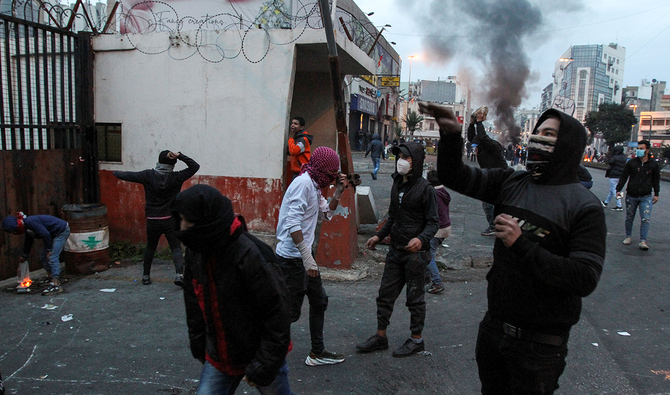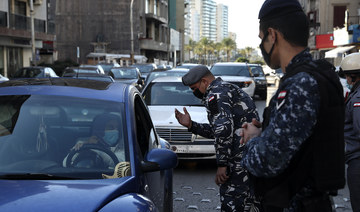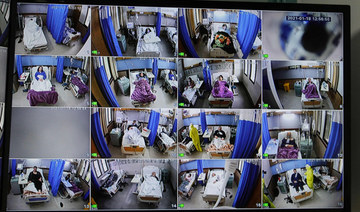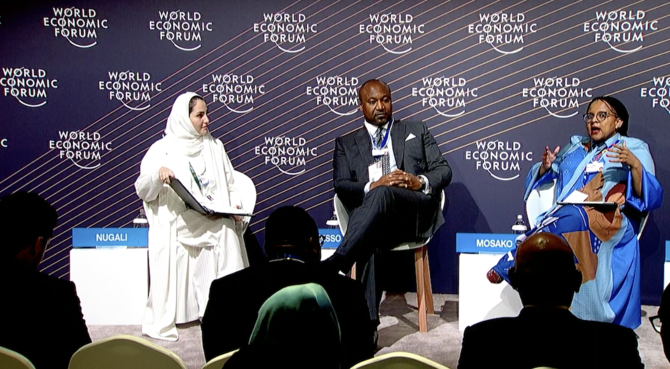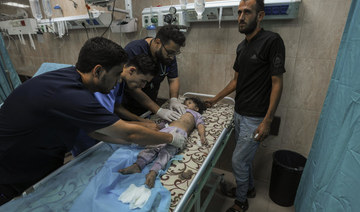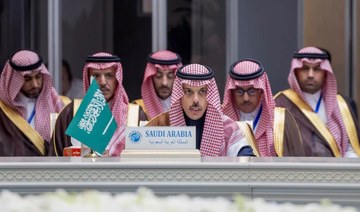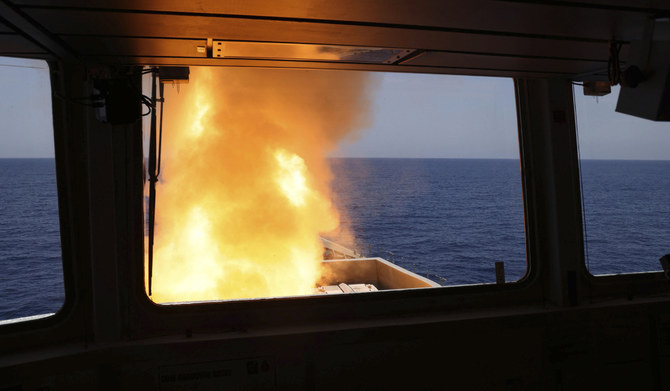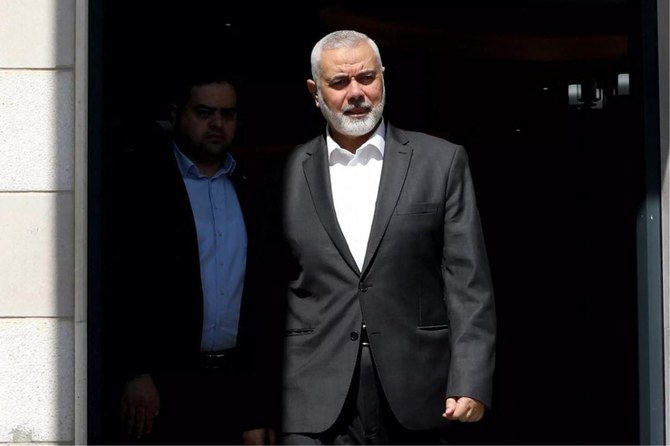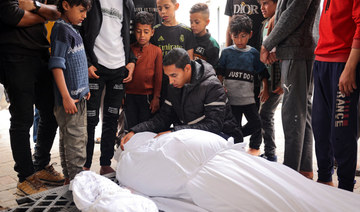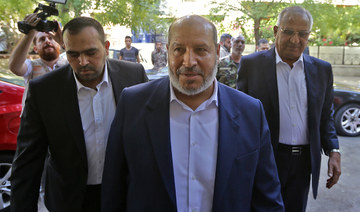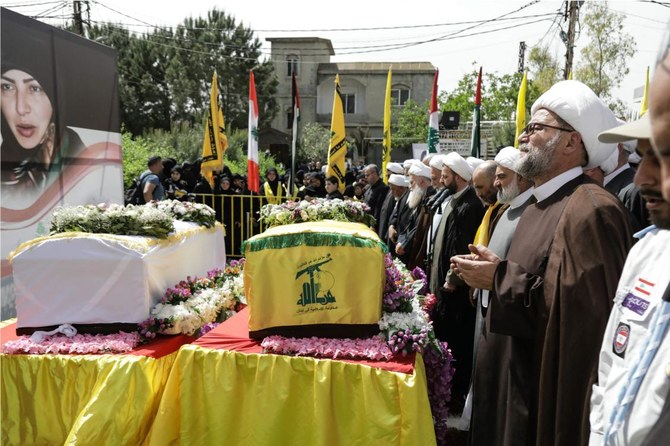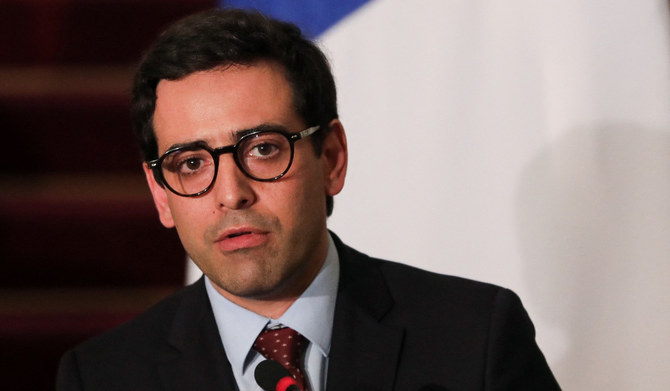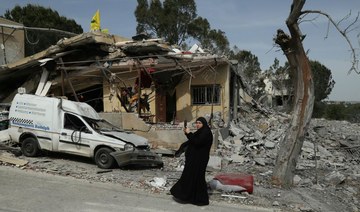BEIRUT: The closure and curfew period in Lebanon has been extended for two more weeks to contain the spread of the coronavirus disease (COVID-19), prompting people in Tripoli, Beirut, and Sidon to take to the streets.
The protests were spontaneous, considering that the neighborhoods from which they started are poor, where the residents work for daily wages.
The Minister of Social Affairs and Tourism in the caretaker government Ramzi Musharrafieh said on Tuesday that “230,000 families in Lebanon benefit from aid and have been receiving 400,000 Lebanese pounds ($263) per month since the beginning of the crisis.” He added that “25 percent of the Lebanese people do not need aid.”
Hundreds of people took to the streets in Tripoli, Sidon, and Beirut to denounce the suspension of the economy and the failure to provide people with alternatives.
One of the protesters said: “Contracting COVID-19 and dying of it is easier than having my family and myself starve to death.”
Protesters in Tripoli took to Al-Nour Square on Monday after days of expressing their impatience and protesting outside the houses of the city’s officials.
One of the protesters said: “COVID-19 does not scare us. We cannot tolerate this life of humiliation anymore. The officials in power have starved and robbed us.”
The protesters clashed with the security forces — the army and the Internal Security Forces — hurling stones and water bottles at them.
Their chants demanded financial compensation for the poorest families, who have not been able to work for two weeks and must wait a further two weeks before they can return to their jobs, resulting in a whole month without any financial income.
The protests spiralled out of control and turned into riots that ended with dozens of arrests. Several army personnel were deployed to control the situation in Al-Nour Square and its vicinity. Riot police used tear gas to disperse the protesters.
The Lebanese Red Cross said it brought in six ambulances as 41 people were injured during the protests. The organization transferred 12 people to hospitals, while 29 were treated at the scene.
In support of the Tripoli protests, dozens gathered at the Ring Bridge in central Beirut.
Activists gathered in Sidon’s Elia Square for a vigil, amid security measures. The protesters chanted slogans denouncing the political authority’s arbitrary decisions, which they argue worsened the economic collapse.
Some protesters said that 60 percent of the poor people in Lebanon are suffering because of these decisions, which were not accompanied with support for people who were laid off due to lockdown measures.
The protests extended to Taalbaya in the Bekaa and the coastal town of Jiyeh. The protesters moved from the poor neighborhoods of Beirut to Corniche el Mazraa and blocked the road, but the riot police reopened it.
Bechara Al-Asmar, head of the General Labor Union, told Arab News: “Things are heading toward chaos, and the authorities’ decisions are ill-considered. When forcing people to stop working, it is important to give them incentives and compensation. There are 120,000 daily workers impacted by the closure, which has come amid a severe economic crisis.”
He added: “They must exempt the factories that suspended production so that they can survive and not lay off their workers if the closure results in stopping operation.
“What can the factories that have agreements with clients abroad do to deliver their products? This is the only sector that is bringing Lebanon fresh money and giving people jobs.”
Al-Asmar said that aid provided by the government “covers 47,000 families, and a further 8,000 taxi drivers have been added to them. This is a small percentage compared to the need among the general population.”
He continued: “Employees are now receiving half a salary or a very meager salary if they don’t lose their jobs as employers prefer shutting down their businesses to continuous losses.”
Bechara added: “We are facing a major social crisis. The daily workers are complaining of their inability to put bread on the table, while the state is unable to hold coordination meetings, so how can it provide compensation for those affected?”



